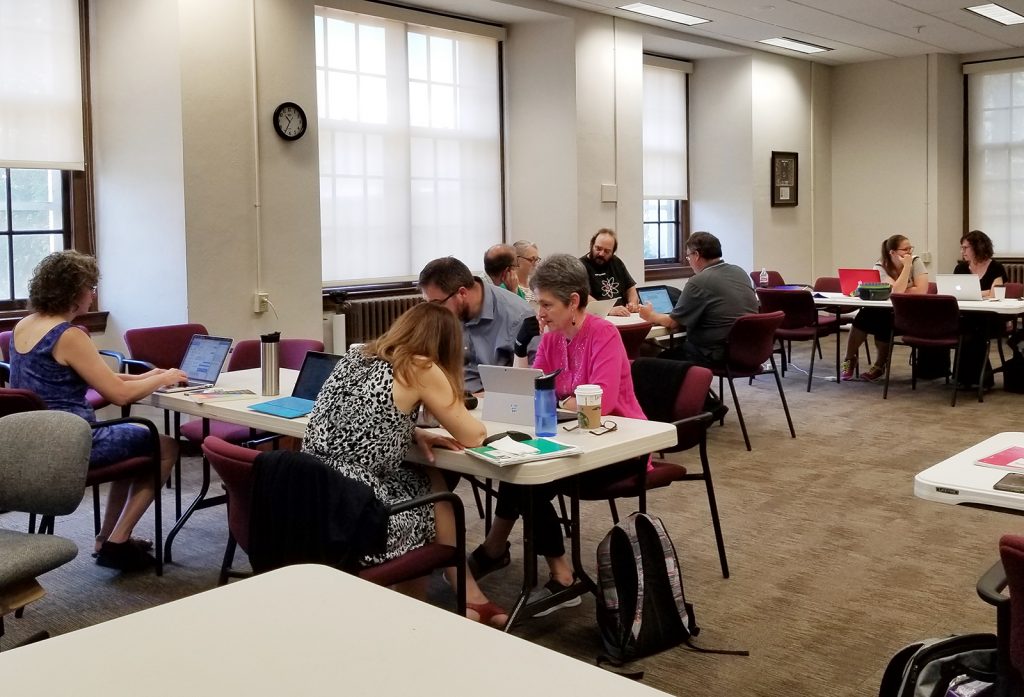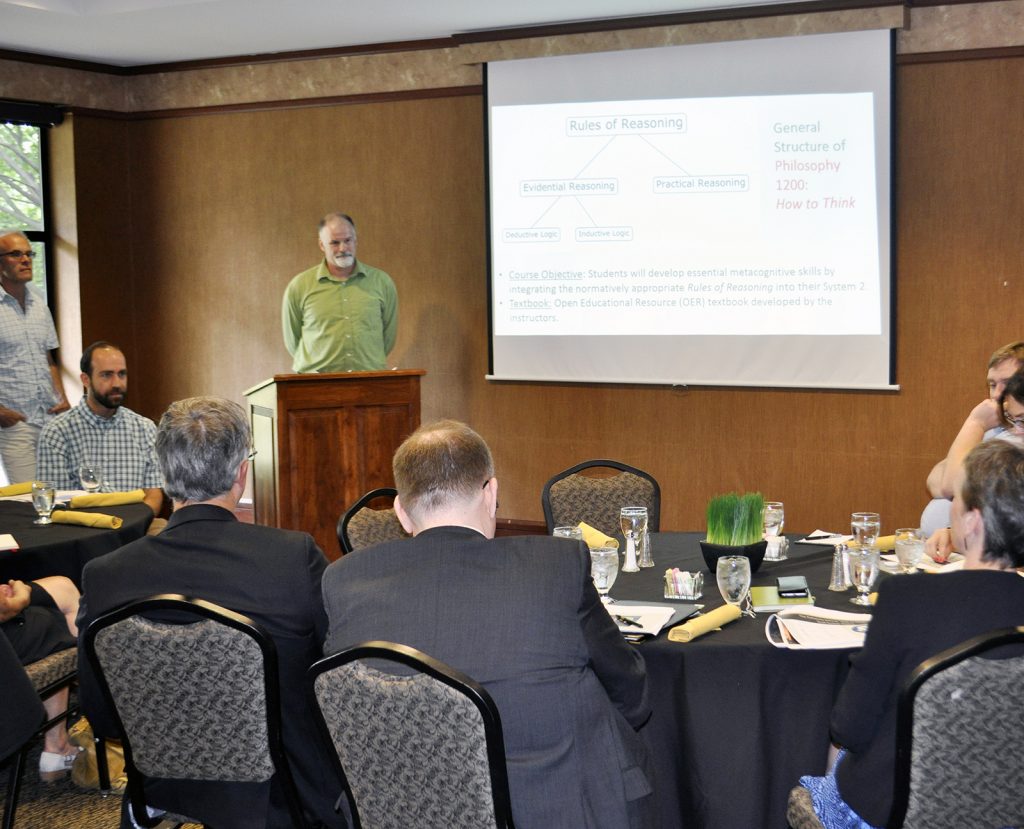Published on July 6, 2018
A group of University of Missouri faculty from a variety of disciplines spent the first part of the summer rethinking curricula in ways that enhance student success.

Thirty-three faculty members participated in Association of College and University Educators’ (ACUE) online course in Effective Teaching Practices that provides faculty with essential skills and knowledge that are key to promoting student success. The course consists of 25 modules that address over 200 evidence-based teaching practices. MU was one of seven institutions to receive the grant from the Kauffman Foundation to support the program.
Following the completion of that course, 18 faculty members participated in the ACUE Summer Institute on Innovative Curricular Design, a five-week program that studied MU’s undergraduate curriculum and explored innovative ideas for enriching the learning experience. The goal of the program was to re-envision the curriculum for learner-centered teaching practices. Representatives from the Provost Office, Campus Writing Program, Educational Technologies and MU Libraries facilitated the program. As part of the institute, participants heard presentations on topics such as open educational resources, instructional design and curricular mapping.
“We had many very open conversations as a group, and in smaller groupings, that helped everyone learn a great deal about teaching practices and experiences,” says Dan Cohen, assistant professor of religious studies. “Note that we were already seasoned veterans of teaching, so this was definitely an ongoing plus.”
Additionally, faculty members researched differing models of innovative curricula and submitted an individual plan to further develop their courses according to principles and techniques learned through the ACUE course and in the summer institute. Faculty members also worked in groups to develop tangible ideas for MU curricular redesign, which they proposed to MU Chancellor Alexander Cartwright, Interim Provost Jim Spain, College of Arts & Science Dean Pat Okker and College of Arts & Science Associate Dean Cooper Drury at the end of the five-week program.
“I was energized while listening to the innovative ideas shared by the faculty,” Spain says. “Not only had these faculty put a lot of thought into their proposals, they displayed a passion for their ideas. It was clear that they weren’t just fulfilling an assignment, they were proposing ideas that they felt would improve student success. These faculty care deeply about teaching and about students learning. That is exciting.”

The proposals included developing thematic general education course sequences, integrating math into biology and physics curricula, developing a series of seminars for first-year students and exploring extended transcripts. Andre Ariew, an associate professor of philosophy, was part of a group proposing a new course titled “How to Think.”
“The course is about making students aware of reasoning fallacies that we all commit and teaching the appropriate rules of reasoning that make us better thinkers and learners,” Ariew says. “The rules of reasoning that we teach are applicable to every course students take at Mizzou, from philosophy to engineering, journalism to medicine, biology to math. We teach how to reason logically, assess evidence, test hypotheses, and make good choices even when the outcomes are uncertain.”
The summer institute gave faculty the opportunity to research aspects of pedagogy and curriculum that are of interest to them, while also providing an opportunity to collaborate with faculty from different disciplines.
“The program exceeded my expectations,” Ariew says. “The extra bonus was to learn best practices from other program participants from a variety of departments.”
The new Teaching for Learning Center plans to provide future opportunities such as this for faculty to collaborate and share ideas.
“There is great potential for the sharing of ideas and even at times possible collaborations that we do not discover until we have opportunities to interact, like the one provided by this summer workshop,” Cohen says. “It would also be a boon to pedagogy overall to talk to one another more frequently about our teaching experiences.”